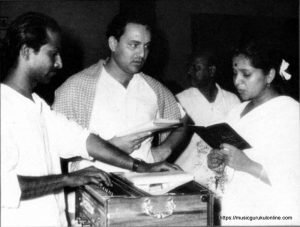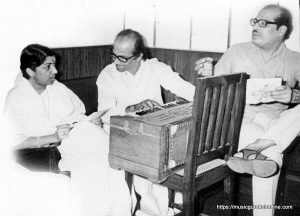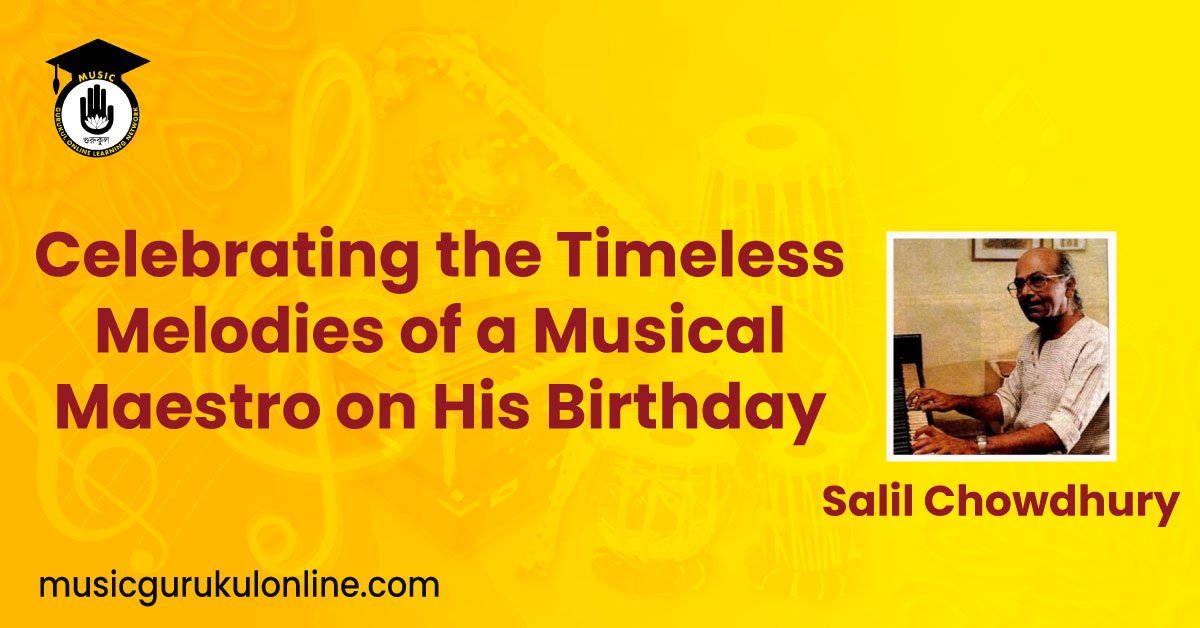On this auspicious day, we commemorate the birth anniversary (19 November 1925 – 5 September 1995) of one of India’s most legendary composers, Salil Chowdhury. Renowned for his soul-stirring melodies and captivating compositions, Chowdhury left an indelible mark on the world of music. His ability to seamlessly blend various genres and his unique approach to storytelling through melodies made him an icon in the Indian music industry. As we celebrate his birthday, let us explore the life and contributions of this musical maestro who continues to inspire generations of music lovers.
Table of Contents
Salil Chowdhury

Early Life and Musical Journey:
Born on November 19, 1922, in Calcutta (now Kolkata), Salil Chowdhury showed an inclination towards music from an early age. He received formal training in music and pursued a degree in English literature while simultaneously honing his skills as a composer. Chowdhury’s journey in the music industry began as a composer for IPTA (Indian People’s Theatre Association), where he crafted politically charged songs that resonated with the masses during India’s independence movement.
Pioneering Musical Style:
Salil Chowdhury’s compositions were marked by their unique fusion of Western and Indian classical music, creating a style that was both melodically rich and socially conscious. He seamlessly blended Indian ragas with Western harmonies, giving birth to a distinct genre that resonated with listeners across generations. His versatility allowed him to compose music for various mediums, including films, non-film albums, and stage productions, leaving an indelible impact in each domain.

Iconic Film Compositions:
Chowdhury’s filmography boasts an extensive repertoire of memorable compositions. From the enchanting “Grameenphone” in ‘Do Bigha Zamin’ (1953) to the timeless “Na Jao Saiyan Chhuda Ke Baiyan” in ‘Sahib Bibi Aur Ghulam’ (1962), his music added depth and emotion to the narrative of numerous cinematic masterpieces. He collaborated with acclaimed filmmakers like Hrishikesh Mukherjee, Bimal Roy, and Gulzar, delivering melodies that have stood the test of time.
Socially Relevant Lyrics:
Beyond his musical prowess, Salil Chowdhury’s songs were often accompanied by poignant and socially relevant lyrics. He used his compositions as a medium to address issues such as poverty, inequality, and the human condition. His compositions not only entertained but also served as a reflection of society, leaving an indelible impact on listeners and fostering a sense of introspection.

Legacy and Influence:
Salil Chowdhury’s musical legacy transcends generations. His compositions have been immortalized in the hearts of music lovers, and his influence can be seen in the works of subsequent generations of composers. His ability to connect with the emotions of the masses and evoke a sense of nostalgia through his melodies continues to resonate today. Chowdhury’s iconic songs like “Manush Manusher Jannya” and “Hazar Rahein Mud Ke Dekhi” remain perennial favorites that showcase his timeless genius.
As we celebrate the birthday of Salil Chowdhury, we honor the life and contributions of a remarkable composer whose melodies continue to captivate and inspire. His ability to seamlessly blend diverse musical styles, his socially conscious approach, and his unmatched talent for storytelling through music make him an icon in the world of Indian music. Salil Chowdhury’s melodies will forever echo in the hearts of music enthusiasts, reminding us of the enduring power of his musical genius.
See more:
